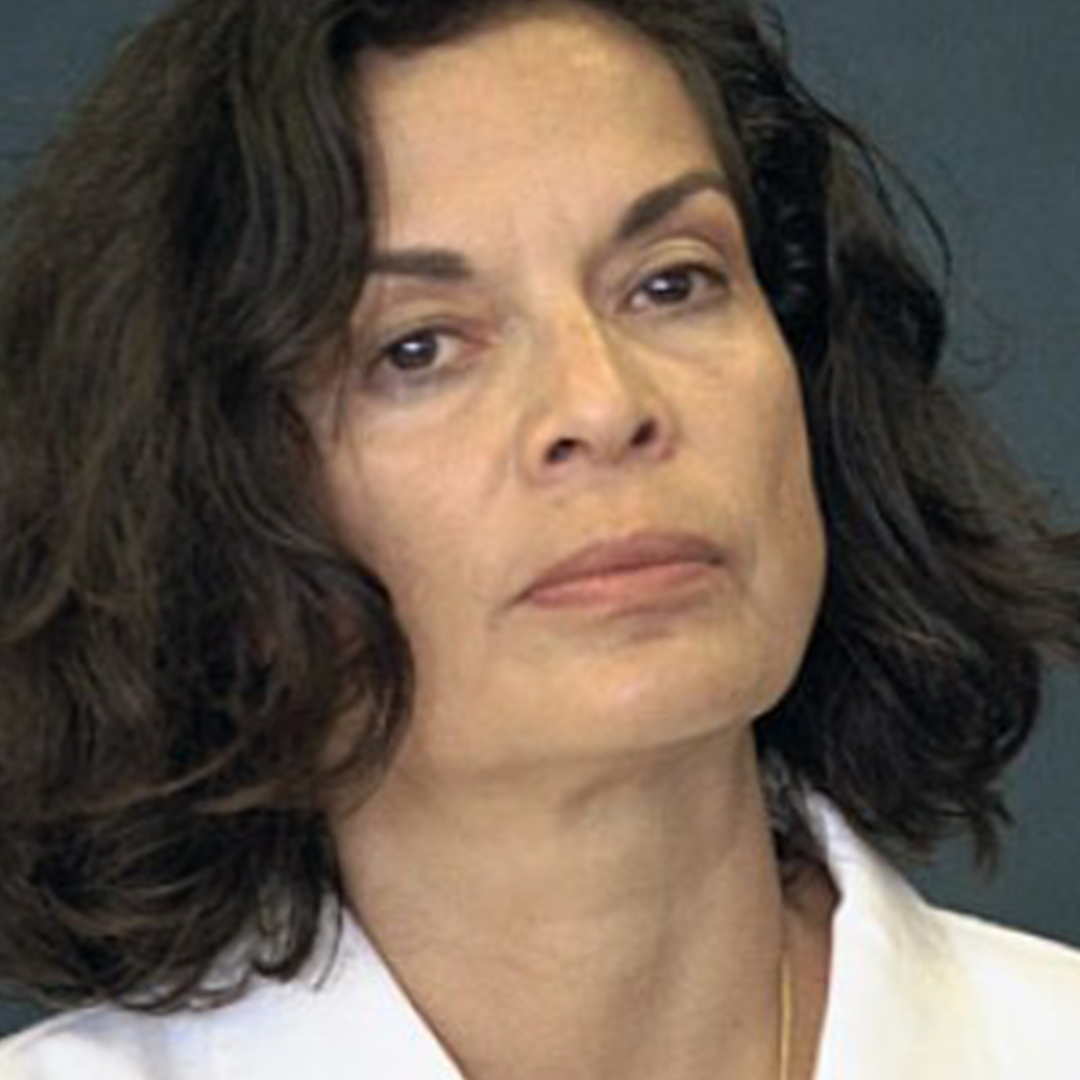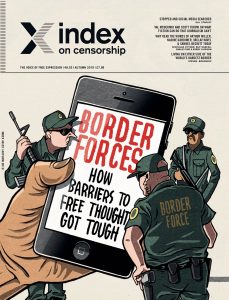Masked by Covid
FEATURING

Zahra Hankir
Journalist

Bianca Jagger
Campaigner

John Gray
Philosopher
FEATURING

Journalist

Campaigner

Philosopher
At the start of the year Index publishes the Nicaraguan poet Ernesto Cardenal before he becomes Minister of Education in the revolutionary government.
The winter issue of the magazine reports on a controversy in the USA in which the Public Broadcasting Service has heavily edited a documentary about racism in Britain and has gone to court attempting to prevent screenings of the original version.
[vc_row][vc_column][vc_custom_heading text=”With contributions from Kerry Hudson, Chen Xiwo, Elif Shafak, Meera Selva, Steven Borowiec, Brian Patten and Dean Atta”][/vc_column][/vc_row][vc_row][vc_column][vc_column_text]

Border forces – how barriers to free thought got tough
[/vc_column_text][/vc_column][/vc_row][vc_row][vc_column][vc_custom_heading text=”Special Report: Border forces: how barriers to free thought got tough”][/vc_column][/vc_row][vc_row][vc_column][vc_column_text]Big brother at the border by Rachael Jolley
Switch off, we’re landing! by Kaya Genç Be prepared that if you visit Turkey online access is restricted
Culture can “challenge” disinformation by Irene Caselli Migrants trying to cross the Mediterranean to Europe are often seen as statistics, but artists are trying to tell stories to change that
Lines of duty by Laura Silvia Battaglia It’s tough for journalists to visit Yemen, our reporter talks about how she does it
Locking the gates by Jan Fox Writers, artists, academics and musicians are self-censoring as they worry about getting visas to go to the USA
Reaching for the off switch by Meera Selva Internet shutdowns are growing as nations seek to control public access to information
Hiding your true self by Mark Frary LGBT people face particular discrimination at some international borders
They shall not pass by Stephen Woodman Journalists and activists crossing between Mexico and the USA are being systematically targeted, sometimes sent back by officials using people trafficking laws
“UK border policy damages credibility” by Charlotte Bailey Festival directors say the UK border policy is forcing artists to stop visiting
Ten tips for a safe crossing by Ela Stapley Our digital security expert gives advice on how to keep your information secure at borders
Export laws by Ryan Gallagher China is selling on surveillance technology to the rest of the world
At the world’s toughest border by Steven Borowiec South Koreans face prison for keeping in touch with their North Korean family
Stripsearch by Martin Rowson Bees and herbaceous borders
Inside the silent zone by Silvia Nortes Journalists are being stopped from reporting the disputed north African Western Sahara region
The great news wall of China by Karoline Kan China is spinning its version of the Hong Kong protests to control the news
Kenya: who is watching you? by Wana Udobang Kenyan journalist Catherine Gicheru is worried her country knows everything about her
Top ten states closing their doors to ideas by Mark Frary We look at countries which seek to stop ideas circulating[/vc_column_text][/vc_column][/vc_row][vc_row disable_element=”yes”][vc_column][vc_custom_heading text=”Global View”][vc_column_text]Small victories do count by Jodie Ginsberg The kind of individual support Index gives people living under oppressive regimes is a vital step towards wider change[/vc_column_text][/vc_column][/vc_row][vc_row][vc_column][vc_custom_heading text=”In Focus”][vc_column_text]Germany’s surveillance fears by Cathrin Schaer Thirty years on from the fall of the Berlin wall and the disbanding of the Stasi, Germans worry about who is watching them
Freestyle portraits by Rachael Jolley Cartoonists Kanika Mishra from India, Pedro X Molina from Nicaragua and China’s Badiucao put threats to free expression into pictures
Tackling news stories that journalists aren’t writing by Alison Flood Crime writers Scott Turow, Val McDermid, Massimo Carlotto and Ahmet Altan talk about how the inspiration for their fiction comes from real life stories
Mosul’s new chapter by Omar Mohammed What do students think about the new books arriving at Mosul library, after Isis destroyed the previous building and collection?
The [REDACTED] crossword by Herbashe The first ever Index crossword based on a theme central to the magazine
Cries from the last century and lessons for today by Sally Gimson Nadine Gordimer, Václav Havel, Samuel Beckett and Arthur Miller all wrote for Index. We asked modern day writers Elif Shafak, Kerry Hudson and Emilie Pine plus theatre director Nicholas Hytner why the writing is still relevant
In memory of Andrew Graham-Yooll by Rachael Jolley Remembering the former Index editor who risked his life to report from Argentina during the worst years of the dictatorship[/vc_column_text][/vc_column][/vc_row][vc_row][vc_column][vc_custom_heading text=”Culture”][vc_column_text]Backed into a corner by love by Chen Xiwo A newly translated story by censored Chinese writer about the abusive relationship between a mother and daughter plus an interview with the author
On the road by Marguerite Duras The first English translation of an extract from the screenplay of the 1977 film Le Camion by one of the greatest French writers of the 20th century
Muting young voices by Brian Patten Two poems, one written exclusively for Index, about how the exam culture in schools can destroy creativity by the Liverpool Poet
Finding poetry in trauma by Dean Atta Male rape is still a taboo subject, but very little is off-limits for this award-winning writer from London who has written an exclusive poem for Index[/vc_column_text][/vc_column][/vc_row][vc_row][vc_column][vc_custom_heading text=”Column”][vc_column_text]Index around the world: Tales of the unexpected by Sally Gimson and Lewis Jennings Index has started a new media monitoring project and has been telling folk stories at this summer’s festivals[/vc_column_text][/vc_column][/vc_row][vc_row][vc_column][vc_custom_heading text=”Endnote”][vc_column_text]Endnote: Macho politics drive academic closures by Sally Gimson Academics who teach gender studies are losing their jobs and their funding as populist leaders attack “gender ideology”[/vc_column_text][/vc_column][/vc_row][vc_row][vc_column width=”1/3″][vc_custom_heading text=”Subscribe”][vc_column_text]In print, online, in your mailbox, on your iPad.
Subscription options from £18 or just £1.49 in the App Store for a digital issue.
Every subscriber helps support Index on Censorship’s projects around the world.
![]() SUBSCRIBE NOW[/vc_column_text][/vc_column][vc_column width=”1/3″][vc_custom_heading text=”Read”][vc_column_text]The playwright Arthur Miller wrote an essay for Index in 1978 entitled The Sin of Power. We reproduce it for the first time on our website and theatre director Nicholas Hytner responds to it in the magazine
SUBSCRIBE NOW[/vc_column_text][/vc_column][vc_column width=”1/3″][vc_custom_heading text=”Read”][vc_column_text]The playwright Arthur Miller wrote an essay for Index in 1978 entitled The Sin of Power. We reproduce it for the first time on our website and theatre director Nicholas Hytner responds to it in the magazine
READ HERE[/vc_column_text][/vc_column][vc_column width=”1/3″][vc_custom_heading text=”Listen”][vc_column_text]In the Index on Censorship autumn 2019 podcast, we focus on how travel restrictions at borders are limiting the flow of free thought and ideas. Lewis Jennings and Sally Gimson talk to trans woman and activist Peppermint; San Diego photojournalist Ariana Drehsler and Index’s South Korean correspondent Steven Borowiec
LISTEN HERE[/vc_column_text][/vc_column][/vc_row]
[vc_row][vc_column][vc_single_image image=”104234″ img_size=”full”][vc_column_text]“Internet shutdowns are increasingly used by governments to control the flow of information, particularly around elections or political unrest,” Alp Toker, executive director and founder of the NetBlocks group, told Index on Censorship.
NetBlocks, which grew out of the 2017 Freedom of Expression Digital Activism Award-winning Turkey Blocks, is a nonprofit organisation created in 2016 to harness technology to map internet freedom. The civil society group aims to protect and support digital rights, cyber-security and internet governance.
“The goal is to go beyond research into prototyping, implementation and deployment of completely new mechanisms that might be able in future to protect and extend our fundamental rights,” Toker said.
NetBlocks has partnered with the Internet Society to create a new tool, Cost of Shutdown Tool (COST), that will cover social media and key content platforms, as well as full internet blackouts.
“What’s the cost of censorship? How much do internet shutdowns cost ordinary citizens? These are the questions we set out to answer at NetBlocks with COST, because traditional advocacy around freedom of expression doesn’t always make the impact it should, but financial figures make authorities listen,” Toker said.
The COST tool has been in a beta mode throughout 2018. NetBlocks estimated a loss of £23.7 million from the March 2018 Sri Lankan internet shutdowns that took place in response to violent riots.
COST’s main goal is to spread awareness about the true costs and effects of online shutdowns. The NetBlocks teams hopes that this will prompt citizens to put pressure on the authoritarian governments who are most responsible for online censorship.
Gillian Trudeau from Index on Censorship spoke to Alp Toker about NetBlock’s new tool, COST, and what to expect from it.
Index: What is the Cost of Shutdown Tool (COST) and what does it do?
Toker: What’s the cost of censorship? How much do internet shutdowns cost ordinary citizens? These are the questions we set out to answer at NetBlocks with COST, because traditional advocacy around freedom of expression doesn’t always make the impact it should, but financial figures make authorities listen.
The Cost of Shutdown Tool (COST) is a data-driven online tool to quickly and easily estimate the economic cost of internet disruptions. Built around economic methodologies devised by the Brookings Institution and CIPESA, the Cost of Shutdown Tool (COST) estimates economic cost of internet shutdowns, mobile data blackouts and social media restrictions using regional indicators from the World Bank, ITU, Eurostat and U.S. Census. The tool will cover shutdowns affecting social media, key content platforms and full Internet blackouts using key indicators relating to the global digital economy. COST is officially launching Monday 10 December, 2018.
Index: What do you hope to achieve with the project?
Toker: We hope to enable anyone – including journalists, researchers, advocates, policy makers, businesses — to understand how much internet disruptions can cost economies, as well as support advocacy and policy work to end online mass-censorship.
Index: How did your relationship with the Internet Society start and what do they bring to the project?
Toker: The Internet Society (ISOC) is a global organisation with over one hundred chapters around the world dedicated to ensuring that the internet stays free and open. We connected at the Internet Engineering Task Force where we are working to strengthen internet protocols for human rights, and things immediately clicked. The partnership has been very strong because it is built around both impact around human rights and technological development — areas of expertise for both organisations. With the Internet Society’s global access, we’ve been able to explore new ways to identify and push back against internet disruptions that harm human rights around the world.
Index: Why should we be concerned about internet shutdowns?
Toker: Internet shutdowns are increasingly used by governments to control the flow of information, particularly around elections or political unrest. Internet shutdowns create chaos through all facets life, from accessing medical services to getting in contact with family members.
Through our work in the #KeepItOn campaign, we’re continuing to monitor these shutdowns around the world. Open access to internet is a key part of a functioning democracy, and is protected by international law and conventions.
Index: What cost estimates do you have for internet shutdowns in 2018?
Toker: In it’s beta mode, the tool has already been used to bolster advocacy efforts around the world. Our first experience using the tool in advocacy came when Sri Lanka shut down parts of the internet during protests, leading to an estimated loss of $30,000,000 USD. Because we were able to calculate the number instantly, it became the basis of a national campaign launched by Sri Lanka’s Social Media User’s Union. In Iraq, multi-day outages cost the economy an estimated $40,000,000 USD. Again, this figure was picked up widely by local and international media and caught the attention of everyone from street vendors to the oil industry. Another shutdown in Ethiopia had a more modest impact of 3,500,000 birr, but that impact targeted a small region with a developing economy and its impact was felt hard. Working with the #KeepItOn coalition, we wrote to the Ethiopian government to highlight the concern with their policy.
Index: What trends in internet shutdowns can we expect COST to uncover in 2019?
Toker: There is a growing tendency toward mass-censorship online, particularly in developing countries. We’ve been seeing more localised disruptions, and COST is now able to estimate the impact of sub-national shutdowns — a powerful approach that highlights the economic impact to a local community.
We have also seen more precisely timed shutdowns, intended to evade detection and reporting. For these reasons, COST works best when there is hard technical evidence of an internet disruption. Hence, it works great in tandem with real-time monitoring data from the NetBlocks internet observatory, which uses new techniques to accurately track such incidents.
In addition, research shows little evidence that cutting off communications provides relief in these situations, but it has been shown again and again that shutdowns do impact emergency first-response, healthcare and the provision of critical service. This is in addition to their severe impact on the fundamental rights of free expression, free assembly and free association.
Index: What are the worst and best countries for internet freedom and why?
Toker: Pakistan and India face systematic disruptions at massive scale, and the problem is also endemic in sub-Saharan Africa. There are also frequent disruptions in the Middle East, and a new trend emerging of shutdowns in Central America.
Index: When was the NetBlocks group created?
Toker: The idea for NetBlocks came about in 2015 and was recognisable in its current form by 2016. We entered the spotlight in 2017 after the first two modules of the internet observatory was launched. Meanwhile, The Index on Censorship Award helped us focus at a critical moment in time with a backdrop of contested elections, overbearing corporations, and the breakdown of online trust. In a time of rapid change the fellowship gave us a way to channel creative energy into a force for good.
Index: Why was the NetBlocks group created?
Toker: NetBlocks exists to meet the overwhelming need and demand for rights-based technology in support of free expression and access to knowledge. The goal is to go beyond research into prototyping, implementation and deployment of completely new mechanisms that might be able in future to protect and extend our fundamental rights. Internet-scale measurement, data-driven policy and advocacy, rights-based internet protocol design, machine learning to uncover violations of fundamental rights: these are some of the new frontiers. I’m sure there will be more.
There are competent civil society technology programmes out there today, but why not shake things up and put the tech at the forefront of the mission? Journalism, writing, the creative arts now exist largely in digital spaces, more vulnerable than at any time in our history. We need to not only understand those spaces, but to master them if we’re to stand a chance defending free thought for the next generation.[/vc_column_text][vc_basic_grid post_type=”post” max_items=”4″ element_width=”6″ grid_id=”vc_gid:1544461258021-a4fe0eae-9690-2″ taxonomies=”9034″][/vc_column][/vc_row]